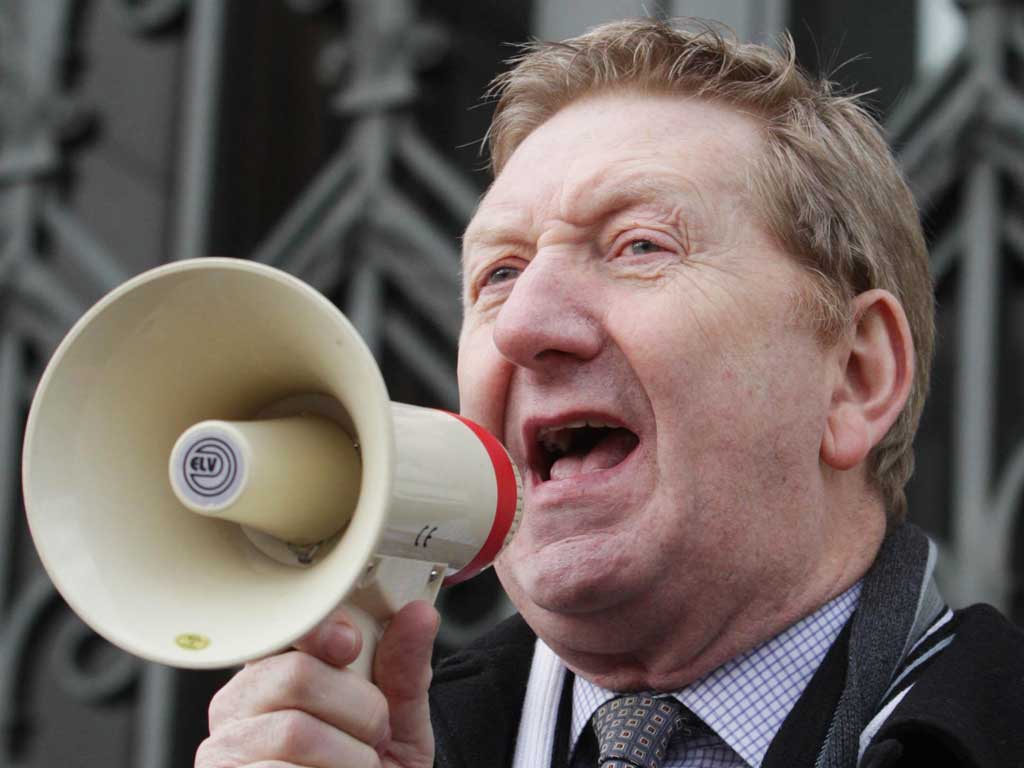Call out the troops to deal with McCluskey and Co? Not any more
We now know that through the summer of 1984, the government was not as confident as it pretended to be that the strike would fail


Your support helps us to tell the story
From reproductive rights to climate change to Big Tech, The Independent is on the ground when the story is developing. Whether it's investigating the financials of Elon Musk's pro-Trump PAC or producing our latest documentary, 'The A Word', which shines a light on the American women fighting for reproductive rights, we know how important it is to parse out the facts from the messaging.
At such a critical moment in US history, we need reporters on the ground. Your donation allows us to keep sending journalists to speak to both sides of the story.
The Independent is trusted by Americans across the entire political spectrum. And unlike many other quality news outlets, we choose not to lock Americans out of our reporting and analysis with paywalls. We believe quality journalism should be available to everyone, paid for by those who can afford it.
Your support makes all the difference.Politics, 30 years ago, was so much more polarised than it is now. If we had forgotten that, the latest disclosures under the 30-year rule are there to remind us. Britain’s biggest union, Unite, generated some unfriendly headlines in 2013, but has anyone suggested calling out the Army to deal with Len McCluskey and Co? In 1984, thousands of police officers were mobilised to limit the activities of the pickets, and sending for troops was under serious consideration.
The latest papers released from the archives give an insight into how imperiously Arthur Scargill ran the National Union of Mineworkers. When Sid Vincent, General Secretary of Lancashire NUM, ventured to ask a question during a confrontation with the coal board, Scargill ordered him to shut up, and Vincent apologised.
We now know that through the summer of 1984, the government was not as confident as it pretended to be that the strike would fail. “We should continue to present our existing public face, but it is just as important that we should be utterly realistic among ourselves,” the pugnacious Norman Tebbit warned. It was not until November, the ninth month of the strike, that ministers could be sure they would win.
Another illustration of how much calmer UK politics are today is that, only last month, talks on the political future of Northern Ireland ran aground, again – but, mercifully, the problem was only words, nothing worse. The IRA bombing of the Grand Hotel in Brighton, 30 years ago this coming autumn, was the most serious terrorist attack on Britain’s political leaders since the Gunpowder Plot. Five people were killed, and others still bear the scars, including Lord Tebbit’s wife, Margaret, who was paralysed by the bomb.
With so much happening, it may seem surprising that John Biffen should complain of “unctuous self-satisfaction” smothering Cabinet debate. We know that there were occasions when Margaret Thatcher’s Cabinet meetings erupted in clashes of personality and principle, but such differences were buried when the government faced a threat to its very existence from the miners. Biffen, a former Thatcherite who had become “semi-detached”– to quote an expression attributed to the No 10 spokesman, Bernard Ingham – was clearly yearning for those rowdy Cabinet arguments to start again. And they did, but by then, Biffen had been sacked.
Join our commenting forum
Join thought-provoking conversations, follow other Independent readers and see their replies
Comments